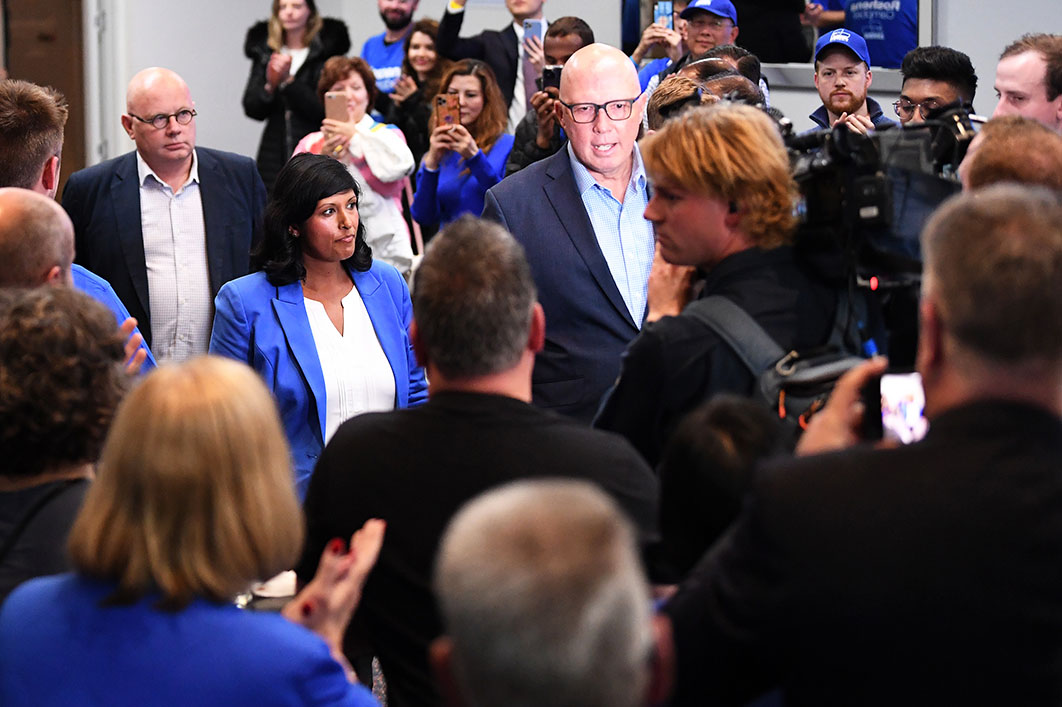I don’t need to tell you that Labor broke a century-long drought when it won the seat of Aston yesterday. But the post-poll celebrations have obscured the fact that by-elections in which governments attract a two-party-preferred swing do indeed happen. In fact, they account for twenty of the (now) ninety contests for which it is possible to estimate a two-party-preferred swing. As this table shows, those twenty have nearly all been in opposition-held seats like Aston.
But yesterday’s result was a biggie, and it will end up being the third-, fourth- or fifth-largest swing since preferential voting was introduced in 1918. The other time a government took a seat from the opposition — one we’ve heard a lot about recently — was Kalgoorlie in 1920, with a more modest 3.5 per cent shift.
For political tea-leaf diviners the swing should probably be more important than the binary win–lose outcome. Had this been a safer seat it would have remained in Liberal hands. But the political class will interpret the result how it wants to.
As I noted on Friday, we can’t really know what motivated voters on Saturday. National opinion polls suggest a much more modest 2 or 3 per cent swing to the government. But the folks on Sky after Dark, taking up their usual theme, are convinced that Aston shows the Liberals aren’t right-wing enough. Peta Credlin even believes Liberal voters stayed at home.
The general theme elsewhere is the opposite: that the Liberals desperately need to move to the centre. This is obviously closer to the truth, but I prefer a more modest version: this and last year’s Victorian result show that conservative culture wars are not the secret to electoral success.
Being hung up about climate change was not the formula for the federal Coalition’s rule 2013 to 2022, and it’s not the formula now. Opposition leader Peter Dutton is a huge hit with a tiny proportion of the voting population, largely due to his forays into John Howard–inspired race-tinged divisiveness, but has never been a great fit for the general electorate. Voters are not repressed cultural warriors, agitating to break free and join the battle against wokeness.
On the other side, Aston voters were evidently not inclined to give the federal government a bloody nose. Anthony Albanese is not seen as “arrogant,” though whether that’s actually a good thing in the long run remains to be seen. A government not seen as arrogant is one that hasn’t yet made difficult decisions. You can’t put them off forever.
This result contrasts dramatically with Gippsland in June 2008, during Kevin Rudd’s first year as prime minister, which saw a 6 per cent swing to the opposition in similar circumstances (a sitting member, in that case for the Nationals, gratuitously retiring). Candidates are more important at by-elections than general elections — who will govern is not at stake, opening up space for other motivations — and Labor’s candidate in Gippsland wasn’t strong. In Aston, the Liberal candidate was a blow-in from the inner city and Labor’s a blow-in from closer-by.
Historically, by-elections haven’t given us any pointers to the likely result of the next general election result. The biggest pro-government by-election swing in history was 13.4 percentage points in the Australian Capital Territory in 1970, during the final term of the Coalition’s twenty-three-year rule. The second-biggest, 12.6 points in West Sydney in 1921, and a big 5.9 points in Maranoa in 1921, were followed by a national three-point swing to the Labor opposition at the next general election, although not a change of government.
A big swing to the opposition in Aston would have been seen as vindicating its general approach and inserted a spring into Dutton’s step. As it is, the very opposite applies. The Liberals’ whole strategy is wide open to question.
Might this even have repercussions for the Voice referendum? Dutton was already in the invidious position of manoeuvring a party room mostly strongly against it. Moves towards conciliation on this and other issues might be what the electorate would prefer, but Aston could also tighten the screws from within the party.
Political life just got a hell of a lot more difficult for the opposition leader. For some this might be a time to get out the popcorn. •





